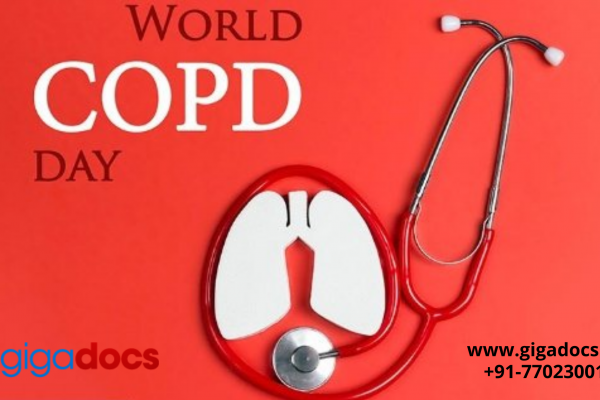Who doesn’t like powerful antioxidants in their food? Like the superfood guava, bell peppers, kiwifruit, strawberries, oranges, papayas, and broccoli? What is common in all? We say an immunity booster, Vitamin C, in short!
What is Vitamin C?
Ascorbic acid, another name for vitamin C, is a water-soluble vitamin essential for numerous bodily processes. It is required to synthesize collagen, a protein essential for the structure and function of many tissues, including skin, tendons, ligaments, and blood vessels. To begin with, what is a water-soluble vitamin?
National Vitamin C Day
National Vitamin C Day is a health observance celebrated annually on April 4th. This day is dedicated to raising awareness about the importance of Vitamin C for overall health and well-being.
Through this blog, let’s learn more about National Vitamin C Day and its many benefits, such as its role in supporting the immune system, promoting skin health, and aiding in iron absorption. In this blog, we will discuss what water-soluble vitamins are, how vitamin C affects our body, the recommended daily intake of vitamin C, vitamin C deficiency, Vitamin C diseases, and how Teleconsultation can be helpful for Vitamin C deficiency
What are water soluble Vitamins?
Water-soluble vitamins are not stored by the body. These include vitamins C and B. Water-soluble vitamins are absorbed by the body through the small intestine and are transported to the body’s tissues through the bloodstream. Excess water-soluble vitamins are excreted in urine which explains why consuming water-soluble vitamins is essential to prevent deficiencies.
How does Vitamin C affect the body?
Vitamin C is an antioxidant, protecting cells from damage caused by free radicals and reactive oxygen species. It also synthesizes neurotransmitters, such as serotonin and norepinephrine, and helps the body absorb iron from plant-based foods.
How does Vitamin C affect your body? Here are some ways that you must know-
- Your powerhouse of antioxidants: Vitamin C is a strong antioxidant that aids in defending cells against cellular harm brought on by reactive oxygen species and free radicals. Other antioxidants, like vitamin E, are also replenished by water soluble vitamins like Vitamin C, aiding in the maintenance of their body levels.
- Boosts the immune system: Vitamin C is known to stimulate the production and activity of white blood cells, which play a vital role in the body’s immune response.
- Helps with collagen synthesis: Vitamin C is required for the synthesis of collagen, a protein that is essential for the structure and function of many tissues, including skin, tendons, ligaments, and blood vessels.
- Enhances iron absorption: Vitamin C enhances iron absorption from plant-based foods by converting iron into a more absorbable form.
- May reduce the risk of chronic diseases: Some studies suggest that high levels of Vitamin C in the blood may be associated with a reduced risk of chronic conditions, such as heart disease, stroke, and cancer.
Recommended Daily Intake of Vitamin C
The recommended daily Vitamin C intake varies depending on age, sex, and other factors. Here are the recommended daily intake levels of Vitamin C for different groups-
| Age group | Daily intake levels of Vitamin C |
| Infants- 0-6 months old | 40 mg/day |
| Infants- 7-12 months old | 50 mg/day |
| Children- 1-3 years old | 15 mg/day |
| Children- 4-8 years old | 25 mg/day |
| Children- 9-13 years old | 45 mg/day |
| Adolescents- 14-18 years old (boys) | 75 mg/day |
| Adolescents- 14-18 years old (girls) | 65 mg/day |
| Adults: 19 years and older (men) | 90 mg/day |
| Adults: 19 years and older (women) | 75 mg/day |
| Pregnant women | 85 mg/day |
| Breastfeeding women | 120 mg/day |
It is important to note that some individuals may require higher doses of Vitamin C, such as smokers or people exposed to secondhand smoke, as well as people under stress, illness, or pregnancy or with a compromised immune system. Additionally, certain medical conditions or medications may increase the need for Vitamin C.
Vitamin C Deficiency
Vitamin C deficiency is a condition that occurs when the body does not get enough Vitamin C, also known as ascorbic acid. Since we cannot produce Vitamin C, we must obtain it through diet.
Signs and symptoms of Vitamin C deficiency may include:
- Frequent infections
- Swollen and painful joints
- Muscle weakness
- Mood changes, such as irritability and depression
- Tooth decay and gum disease
Vitamin C deficiency can occur in people with a poor diet that lacks Vitamin C-rich foods, such as fruits and vegetables. It can also occur in people with a medical condition that affects the absorption or use of Vitamin C, such as Crohn’s disease or kidney disease.
Vitamin C Diseases
Vitamin C deficiency can lead to several health problems, the most well-known of which is scurvy. Scurvy is a rare disease resulting from severe and prolonged Vitamin C deficiency, which can lead to symptoms such as fatigue, weakness, joint pain, anemia, and bleeding gums.
Other conditions that may be associated with low Vitamin C levels include:
- Increased susceptibility to infections: Vitamin C plays a crucial role in the immune system, and low levels of Vitamin C may increase the risk of diseases, particularly respiratory infections.
- Delayed wound healing: Vitamin C is essential for producing collagen, which is a critical component of skin and helps wounds heal. Low levels of Vitamin C may delay the healing of wounds.
- Dry, rough skin: Vitamin C is involved in producing sebum, the oily substance that keeps skin moisturized. Low levels of Vitamin C may lead to dry, rough skin.
- Anemia: Vitamin C helps the body to absorb iron from plant-based foods, and low levels of Vitamin C may lead to iron deficiency anemia.
- Fatigue: Vitamin C is involved in the body’s energy production, and low levels of Vitamin C may lead to fatigue and weakness.
Teleconsultation with Gigadocs for Vitamin C Deficiency
Teleconsultation can be a helpful tool for diagnosing and treating Vitamin C deficiency, especially for patients who cannot visit a healthcare provider in person. During a teleconsultation for Vitamin C deficiency, the doctor will likely ask about the patient’s symptoms and medical history, as well as their diet and lifestyle habits. They may also ask about any ongoing medications currently taken by the patient.
Based on the patient’s symptoms and medical history, the doctor may recommend a blood test to measure the patient’s Vitamin C levels and suggest dietary changes to increase the patient’s vitamin C intake.
Teleconsultation can also help monitor the patient’s progress and adjust the treatment plan. Teleconsultation may additionally schedule follow-up appointments to check the patient’s Vitamin C levels and ensure the treatment works effectively.
It is important to note that while teleconsultation can be a valuable tool for diagnosing and treating Vitamin C deficiency, it is not a substitute for in-person medical care in certain situations. Patients with severe symptoms or medical complications may require in-person evaluation and treatment. To book an initial specialist appointment, download the Gigadocs app today from-
Download the Gigadocs app from-
- IOS App – apple.co/2W2iG4V
- Android App – bit.ly/33AQoRC
To know more e-mail, at info@gigadocs.com




